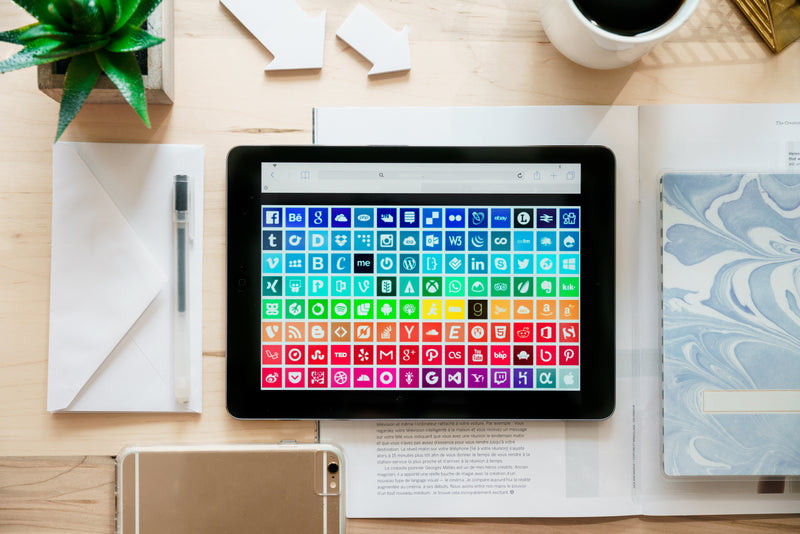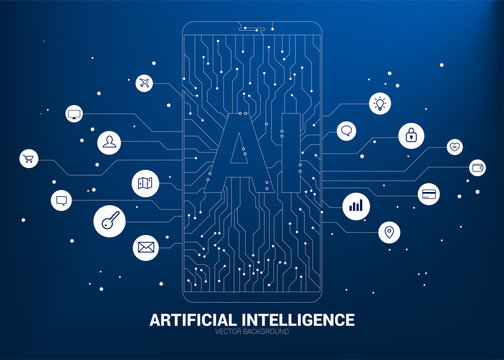Marketing copywriting has come a long way since the days of print ads and radio jingles. With the rise of artificial intelligence (AI), marketers are now able to create content that is more compelling and personalized than ever before. But just how potent is AI marketing copywriting? In this comprehensive analysis, we’ll delve deep into the world of AI marketing copywriting, exploring its capabilities and limitations, and uncovering some surprising insights along the way. So if you’re ready to unlock the full potential of AI in your marketing campaigns, read on!

Understanding the Basics of AI Marketing Copywriting
AI marketing copywriting is a form of digital marketing that involves the use of artificial intelligence to generate effective copy. With advancements in AI technology, businesses can now automate their content creation process and produce high-quality, engaging content in a matter of minutes. This allows companies to reach more customers with targeted messaging while saving time and resources.
One key benefit of AI marketing copywriting is its ability to personalize content for individual consumers based on their online behavior and interests. Another advantage is the increased efficiency it provides, allowing businesses to create more content in less time without sacrificing quality.
However, there are also potential drawbacks to using AI for marketing copywriting, such as the risk of producing low-quality or generic content if not properly implemented. As with any new technology, it’s important for businesses to carefully consider how they integrate AI into their overall strategy and ensure ethical considerations are taken into account throughout the process.
The Benefits of AI Marketing Copywriting for Your Business
AI marketing copywriting provides businesses with a competitive edge by enabling them to create personalized content that resonates deeply with their target audience. By using AI, marketers can now generate high-quality written material at scale which results in a lower cost per acquisition.
Additionally, AI marketing copywriting generates insights from data-driven analysis and automated experimentation, allowing businesses to make informed decisions based on actual data. For example, sentiment analysis can be used to identify how your customers feel about your brand or product, while A/B testing allows you to compare two versions of content accurately.
Overall, the benefits of incorporating AI into your marketing copywriting strategy are apparent: greater efficiency through automation and personalization; higher engagement rates from well-written and relevant messaging; increased ROI due to lower costs of acquisition driven by AI-optimized campaigns. As more companies adopt this innovative technology as part of their overall business strategy, we will undoubtedly see even more significant growth in the use cases for AI-generated content.
How to Incorporate AI into Your Marketing Copywriting Strategy
Incorporating AI into your marketing copywriting strategy can be a game-changer for your business. One way to do this is by using AI-powered tools that assist with generating content ideas, crafting headlines or subject lines, and even writing entire pieces of content. This technology uses natural language processing and machine learning algorithms to analyze data and understand user behavior in order to produce high-quality copy that resonates with the target audience.
Keyword research is a crucial part of any successful marketing campaign, and AI can help you identify which terms are most relevant to your audience. Utilizing these insights can enable you to create more targeted messaging that speaks directly to their pain points.
Another important feature is personalization, which allows brands to deliver customized experiences based on individual customer preferences. By analyzing user behavior and purchase history, AI-generated messages can be tailored specifically for each person, increasing engagement rates and building brand loyalty.
Overall, incorporating AI into your marketing copywriting strategy streamlines the process while enhancing the quality of the final product. As technology continues to advance at an exponential rate, it’s essential for businesses wanting an edge over competitors to embrace these developments in their marketing efforts.

Examples of Successful AI Marketing Copywriting Campaigns
Examples of Successful AI Marketing Copywriting Campaigns
Natural Language Generation (NLG) is a popular technique used in AI marketing copywriting. One of the most successful campaigns using NLG was by The Washington Post during the 2016 Summer Olympics. They used an AI program called Heliograf to write articles on the Olympics and published them on their website and social media platforms. The articles were informative, engaging, and error-free.
Another successful campaign was by Persado, an AI-powered marketing platform. They helped a financial services company improve their email open rates by 69% using their AI-generated subject lines. The platform analyzed data from previous campaigns and created personalized subject lines for each recipient.
These examples show that AI marketing copywriting can be highly effective in creating engaging and personalized content for your audience. By leveraging the power of AI, businesses can improve their marketing efforts and achieve better results.

The Future of AI in Marketing Copywriting: Trends and Predictions
The future of AI in marketing copywriting is full of potential. One trend that’s already gaining traction is the use of chatbots to interact with customers and create personalized experiences. In fact, by 2023 it’s predicted that the global chatbot market will reach $9.4 billion.
Another rising trend in AI marketing copywriting is using machine learning algorithms to analyze large amounts of customer data, generating insights into their behavior and preferences. These insights can then be used to create targeted messaging, improving engagement rates and ROI.
However, as AI becomes more prominent in marketing copywriting there are some concerns about its impact on creativity and humanity. Many argue that while AI-generated copy may be effective, it lacks the emotional connection humans are capable of creating through language.
Despite these concerns, it’s clear that AI technology will continue to shape the future of marketing copywriting in exciting ways we can’t even imagine yet. As businesses embrace this innovative approach they stand to gain a competitive edge by providing more relevant content tailored specifically for each individual customer.

Common Misconceptions About AI Marketing Copywriting Debunked
Myth #1: AI Marketing Copywriting Is Impersonal and Lacks Creativity
One of the biggest misconceptions about using AI for marketing copywriting is that it produces cold, impersonal content. However, this couldn’t be further from the truth. In fact, with advances in Natural Language Processing (NLP), AI can now produce copy that sounds just like a human wrote it.
Additionally, some AI software programs even have built-in creativity features that allow them to generate unique ideas and concepts for your marketing campaigns. By leveraging these tools alongside your own creativity and expertise in your industry, you can create compelling copy that effectively communicates your brand’s message to your target audience. Don’t let this myth hold you back from exploring all the possibilities
Myth #2: AI Can Replace Human Marketers Completely
One of the biggest misconceptions about AI marketing copywriting is that it can completely replace human marketers. While AI can certainly assist in generating copy and analyzing data, it cannot replace the creativity and emotional intelligence that humans bring to the table. AI-generated copy may lack the personal touch and nuanced understanding of human behavior that comes from years of experience in the field. Additionally, AI may not be able to adapt to sudden changes in market trends or consumer behavior as quickly as a human marketer can. Therefore, it is important to view AI as a tool to enhance and complement human marketing efforts rather than a replacement for them.
Myth #3: AI-Generated Content Is Low-Quality and Unreliable
One of the biggest misconceptions about AI marketing copywriting is that it produces low-quality and unreliable content. However, this couldn’t be further from the truth. With advancements in machine learning algorithms, AI has become more proficient at producing high-quality content that’s both accurate and relevant to the intended audience.
In fact, many companies have reported increased productivity and improved ROI since adopting an AI-driven approach to their marketing copywriting efforts. By leveraging machine learning capabilities such as natural language processing (NLP) and semantic analysis, businesses can create compelling messages that resonate with their target customers.
Overall, it’s important to remember that while there are limitations to what AI-generated content
Debunking Misconceptions: How AI Marketing Copywriting Actually Enhances Your Strategy
AI marketing copywriting has received some negative feedback due to misconceptions about its effectiveness. One of the most common misconceptions is that it lacks creativity and personalization, but this couldn’t be further from the truth. AI-generated copy can analyze data and use language patterns to create content that resonates with your target audience on a deeper level. This improves engagement rates and makes your brand more relatable, all while saving time and effort for your team. Another misconception is that AI will replace human writers altogether, when in reality it works best as a tool to enhance their skills and productivity. With AI marketing copywriting, you can achieve a significant boost in conversions while staying true to your brand voice and message.

Tips for Writing Effective AI-Generated Marketing Copy
Crafting Engaging and Relevant Content with AI Assistance
To create effective AI-generated marketing copy, it’s important to keep in mind two key phrases: relevance and engagement. First, ensure that the content is relevant to your target audience by using data-driven insights to understand their preferences and needs. Second, use AI tools to craft engaging copy that captures their attention and encourages them to take action. This can include using language that resonates with your audience, incorporating storytelling techniques, and utilizing persuasive calls-to-action. By combining these elements, you can create marketing copy that not only drives conversions but also builds brand loyalty and trust with your customers.
Maximizing Results: Tips to Optimize Your AI-Generated Marketing Copy
To maximize the effectiveness of your AI-generated marketing copy, consider these tips:
- Use clear and concise language that is easy to understand.
- Focus on customer benefits and how your product or service can solve their problems.
- Personalize the content based on user data to increase engagement.
- Test different variations of copy to see which performs best.
- Incorporate keywords relevant to your target audience for better search engine optimization (SEO).
By following these guidelines, you can ensure that your AI-generated marketing copy delivers results and effectively communicates your message.
Tapping into the Full Potential of AI Technology for Enhanced Marketing Strategies
To tap into the full potential of AI technology for enhanced marketing strategies, it is important to understand how it works and what its capabilities are. First, identify your target audience and tailor the content accordingly using data analysis. Utilize AI tools like natural language processing and machine learning algorithms that can generate personalized messages to capture potential leads. Make sure to optimize your copy by incorporating relevant keywords for better search engine rankings. Continuously measure and analyze results to improve ROI with automated A/B testing features offered by AI software solutions. Incorporating these tips will ensure you produce effective AI-generated marketing copy, which will help you achieve your business goals in a shorter span of time while staying ahead of your competitors.

Ethical Considerations in Using AI for Marketing Copywriting
Ethical considerations are important when using AI for marketing copywriting. One concern is the potential loss of jobs in the industry, as AI technology becomes more advanced and capable of producing high-quality content. It’s crucial for companies to prioritize their employees and ensure that they’re not replaced entirely by machines.
Another ethical issue is the potential for bias in AI-generated content, particularly if the algorithms used are trained on data that has inherent biases. Companies need to take steps to mitigate this risk by ensuring diverse datasets are used when training algorithms.
Additionally, there’s a risk of deceptive advertising or manipulation when using AI in marketing copywriting. Businesses must be transparent about their use of AI and disclose how it was implemented within their messaging.
It’s essential for marketers to strike a balance between implementing cutting-edge technology while still maintaining ethical standards and responsible business practices.
In conclusion, AI marketing copywriting has the potential to transform the way businesses approach their marketing campaigns. By leveraging advanced algorithms and natural language processing techniques, AI can quickly generate high-quality content that resonates with your target audience.
As we have explored throughout this article, incorporating AI into your marketing copywriting strategy can bring a multitude of benefits. From increased efficiency to improved personalization and better overall performance, it is clear that the technology is here to stay.
However, as with any new technology, there are also ethical considerations that must be taken into account when using AI for marketing purposes. It is important to be transparent about how AI-generated content is being used and ensure that it aligns with your brand values.
If you’re looking to learn more about this exciting field or want tips on how to get started with implementing AI in your own marketing strategy, check out our other content on the subject! Our team of experts is dedicated to providing valuable insights and actionable advice so you can make the most of
